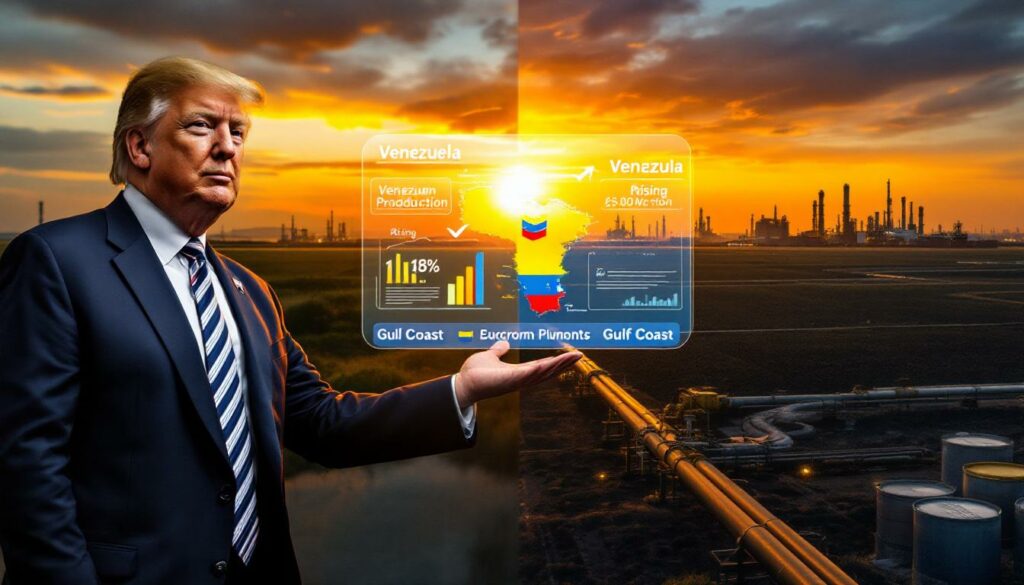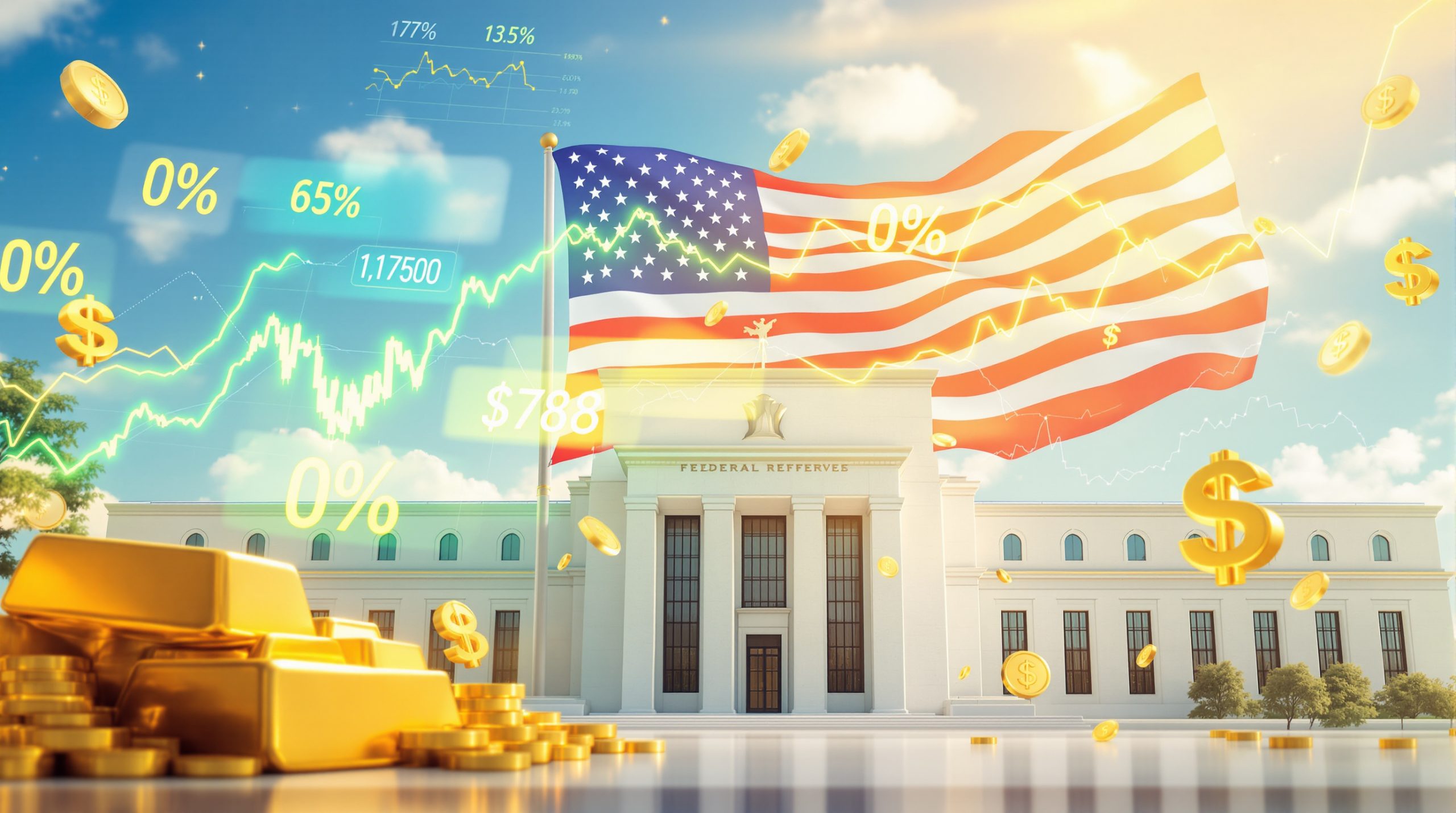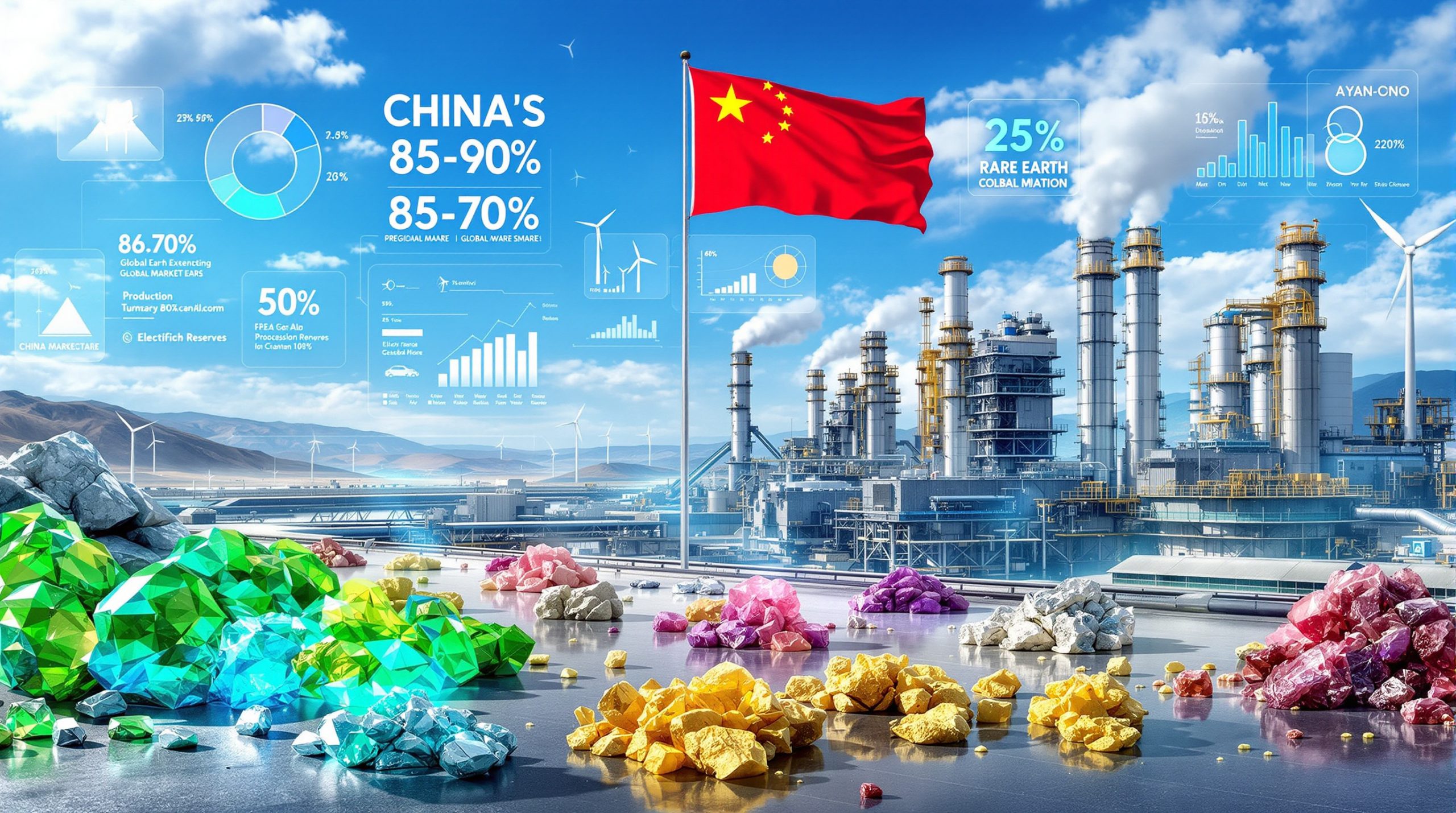Understanding the Trump-Chevron Venezuela Deal
The recent decision by the Trump administration to reinstate Chevron's license to operate in Venezuela represents a major shift in U.S. foreign policy. This strategic move allows the American energy giant to resume operations in Venezuela, which possesses the world's largest proven oil reserves at approximately 303.8 billion barrels, according to OPEC data. Industry analysts project this could potentially add over 200,000 barrels per day to U.S. refineries once operations are fully restored.
According to energy expert Dr. Cyril Widdershoven, "This policy reversal acknowledges the practical limitations of previous sanctions-based approaches while prioritizing America's strategic energy interests in an increasingly competitive global landscape."
Why Did Trump Approve Chevron's Return to Venezuela?
Energy Security Considerations
The administration's decision comes amid growing concerns about American energy security in a volatile global market. With ongoing conflicts in the Middle East creating supply uncertainties, access to Venezuelan oil provides a strategic alternative supply source that reduces dependency on more politically unstable regions.
Venezuelan crude is particularly valuable for Gulf Coast refineries, which are specifically designed to process heavy, high-sulfur oil grades. These specialized facilities have struggled to find adequate replacement feedstock since sanctions limited Venezuelan imports, operating below optimal capacity and efficiency.
Energy security analysts note that diversification of supply sources remains a cornerstone of U.S. energy strategy, with Venezuelan production offering a geographically advantageous option compared to Middle Eastern alternatives. The recent oil price rally has further emphasized the importance of securing stable supply sources.
Economic Benefits for the U.S.
Chevron's renewed operations in Venezuela are expected to deliver substantial economic advantages to the American economy:
- Refining Sector Boost: The additional 200,000+ barrels per day would utilize idle capacity at specialized Gulf Coast refineries
- Price Stabilization: Increased heavy crude supply could help moderate fuel prices during peak summer demand periods
- Supply Chain Resilience: Strengthened regional energy networks reduce vulnerability to global disruptions
- Job Creation: Estimates suggest the deal could support thousands of direct and indirect jobs in the refining sector
Oil market analyst Maria Rodriguez explains: "The economics are compelling because Venezuelan crude characteristics match perfectly with existing U.S. refinery configurations, creating a natural market synergy that benefits both countries."
Geopolitical Strategy Shift
This policy change represents a significant pivot from previous approaches that focused primarily on regime change through economic pressure:
- Counters growing Chinese and Russian influence in Venezuela's energy sector
- Maintains American commercial leadership in the Western Hemisphere
- Secures preferential access to strategic resources beyond oil, including rare earth minerals
- Demonstrates a results-based foreign policy approach
The policy shift comes after years of sanctions failed to achieve their stated political objectives while creating economic hardships and opening the door for competitors like China to establish stronger positions in Venezuela's resource sector. The potential Trump tariff impact on global trade makes this shift in energy policy even more significant.
How Does the Chevron Deal Impact U.S.-Venezuela Relations?
Diplomatic Developments
The license reinstatement follows several positive diplomatic developments that signal improving bilateral relations:
- Release of American detainees from Venezuela
- Agreement by Venezuela to accept hundreds of its nationals held in El Salvador
- Establishment of working-level communication channels between the countries
- Preliminary discussions on electoral transparency measures
These developments suggest a potential thawing in what has been one of the most contentious bilateral relationships in the Western Hemisphere for over a decade.
Policy Realignment
The move signals a significant shift from previous administration approaches:
- Moving away from maximalist sanctions strategies that yielded limited political results
- Adopting a more pragmatic engagement policy focused on sectoral cooperation
- Prioritizing tangible American interests over ideological positions
- Reducing the influence of political theater in foreign policy decisions
Foreign policy experts note this realignment represents a broader trend toward pragmatic engagement with challenging regimes where total isolation has proven ineffective at achieving policy objectives. According to Fox Business, this approach marks a significant departure from previous policies.
What Are the Broader Implications of the Chevron Deal?
For Global Energy Markets
The deal could have far-reaching effects on international energy dynamics:
- Heavy Crude Supply: Increased availability of heavy grades for specialized refineries globally
- Market Segmentation: Potential rebalancing between light and heavy crude price differentials
- Seasonal Volatility: Reduction in market fluctuations during peak demand periods
- Import Diversification: Less reliance on Middle Eastern sources for similar grade crude
Energy market analysts project the initial production increases will be modest but could accelerate as infrastructure improvements take hold, potentially reaching pre-sanctions levels within 18-24 months if political conditions remain stable. However, concerns about a potential oil price crash still linger among some market observers.
For Regional Influence
The agreement strengthens America's position in Latin America:
- Counters the narrative of U.S. disengagement from the region
- Creates economic incentives for cooperation rather than confrontation
- Establishes a framework for potential future agreements in other sectors
- Reduces opportunities for adversarial powers to expand influence
Regional security expert Carlos Mendez observes: "This deal represents a recognition that economic engagement often provides more leverage than isolation, particularly in a region where China has been strategically expanding its footprint through infrastructure investments and resource deals."
For Strategic Resource Security
Beyond oil, the deal has implications for other critical resources:
- Opens pathways to access Venezuela's vast reserves of rare earth minerals
- Positions American companies to compete in strategic mineral markets
- Supports supply chain security for high-tech manufacturing
- Reduces dependency on other global sources for critical materials
Venezuela possesses significant deposits of coltan, nickel, and other minerals essential for advanced technology production, making these resources increasingly important in the context of global supply chain competition.
How Was the Chevron Deal Negotiated?
Internal Administration Dynamics
The decision emerged after significant internal debate within the administration:
- Tension between Secretary of State Marco Rubio's preference for maintaining maximum pressure and Special Envoy Richard Grenell's advocacy for pragmatic engagement
- Months of interdepartmental discussions involving Treasury, State, and Energy departments
- Presidential intervention to align policy with broader foreign policy doctrine
- Victory of pragmatism over ideological considerations after assessment of sanctions effectiveness
Sources familiar with the negotiations indicate that economic and energy security arguments ultimately prevailed over political considerations, reflecting a prioritization of tangible interests. The potential impact of US economy tariffs played a role in these considerations.
Implementation Timeline
The reinstatement process follows a structured approach:
- Immediate authorization for Chevron to resume operations in specific fields
- Phased removal of restrictions on equipment imports and technical services
- Gradual scaling of production targets with compliance monitoring
- Potential extension of similar authorizations to European firms like Eni and Repsol if initial phases proceed successfully
Industry sources report that Venezuela has already begun preparing necessary equipment for pipeline operations, suggesting production increases could begin relatively quickly after formal authorization.
What Challenges Remain for U.S.-Venezuela Energy Relations?
Political Opposition
The policy shift faces criticism from various quarters:
- Resistance from Cuban-American congressional representatives concerned about regional implications
- Opposition from politicians who have built platforms on anti-Maduro positions
- Concerns about legitimizing the current Venezuelan government
- Debates about the effectiveness of sanctions as a policy tool
Domestic political considerations will continue to influence the administration's approach, particularly as energy policy increasingly intersects with electoral politics.
Operational Hurdles
Despite the license reinstatement, significant challenges remain:
- Infrastructure Deterioration: Years of underinvestment have left much of Venezuela's oil infrastructure in poor condition
- Technical Expertise Gaps: Many skilled workers left the country during the economic crisis
- Compliance Complexity: Navigating remaining sanctions requires careful legal navigation
- Investment Uncertainty: Questions about long-term political stability affect capital allocation decisions
Petroleum engineers familiar with Venezuela's fields estimate that substantial investment—potentially exceeding $10 billion over five years—would be needed to restore production to historic peaks. These challenges are compounded by the US oil production decline trend observed in recent years.
Long-term Sustainability
Questions persist about the sustainability of the new approach:
- Potential for policy reversal under future administrations
- Uncertainty about Venezuela's political stability and governance
- Varying stakeholder expectations about the pace and scope of engagement
- Need for clear metrics to evaluate policy success
Disclaimer: This analysis involves forecasts and speculation about future energy market and geopolitical developments. Actual outcomes may vary based on numerous factors including political developments, market conditions, and technological changes.
FAQs About the Trump-Chevron Venezuela Deal
Is this deal an endorsement of the Maduro government?
No. The administration characterizes this as a pragmatic acceptance of reality rather than an endorsement. It prioritizes American interests while acknowledging the limitations of previous regime-change efforts. The policy maintains pressure for democratic reforms while pursuing areas of mutual economic benefit.
How quickly will Venezuelan oil reach U.S. refineries?
Industry analysts suggest that initial shipments could begin within 4-6 weeks of formal authorization, with production gradually scaling up as operations normalize. Venezuela has already prepared equipment for resuming pipeline operations, but significant infrastructure challenges remain before reaching full capacity.
Will other U.S. companies be allowed to operate in Venezuela?
The current authorization specifically covers Chevron, but the policy shift suggests potential openings for other American companies, particularly in the energy sector. European firms like Eni and Repsol may also receive similar authorizations if initial phases demonstrate compliance with remaining restrictions.
How does this affect U.S. sanctions on Venezuela?
While this represents a significant modification of the sanctions regime, broader sanctions targeting specific individuals and sectors remain in place. The license provides a specific carve-out for Chevron's operations rather than a wholesale lifting of restrictions, maintaining leverage for future negotiations on political reforms.
What impact will this have on global oil prices?
The immediate market impact may be modest, but the additional supply could help stabilize prices, particularly for heavy crude grades. Market analysts suggest price effects will likely be regional rather than global initially, with Gulf Coast refiners seeing the most direct benefit through improved margins on refined products.
The Geological Context of Venezuelan Oil
Venezuela's oil reserves are predominantly found in the Orinoco Belt, containing extra-heavy crude with API gravity between 8-10 degrees. This oil requires specialized refining processes, making it less valuable than lighter grades but perfectly suited for complex Gulf Coast refineries that invested billions in appropriate processing equipment.
The unique geological characteristics of Venezuelan oil fields present both challenges and opportunities:
- High bitumen content requires specific extraction technologies
- Longer production lifecycles than conventional fields
- Higher carbon intensity in both extraction and refining
- Substantial associated natural gas resources remain largely undeveloped
These factors influence the economic calculations behind the Trump and Chevron deal to return to Venezuela, as the company's existing expertise with these specific geological conditions provides competitive advantages over potential new entrants to the market. As Oil Price reports, this expertise is crucial for maximizing production efficiency.
Strategic Implications for Energy Investors
For energy sector investors, the policy shift creates several potential opportunities:
- Refining sector gains: Companies with heavy crude processing capacity stand to benefit from improved feedstock access
- Oilfield services: Firms specializing in heavy oil extraction technology may see increased demand
- Infrastructure rehabilitation: Companies with expertise in restoring aging oil infrastructure could see contract opportunities
- Regional energy integration: Businesses involved in Caribbean and Latin American energy distribution networks may benefit from increased regional trade flows
However, investors should carefully consider the political risks that remain, including potential policy reversals under future administrations and ongoing governance challenges within Venezuela itself.
Ready to Get Ahead of Major Mineral Discoveries?
Discover why significant ASX mineral discoveries can lead to exceptional market returns by exploring Discovery Alert's dedicated discoveries page, where their proprietary Discovery IQ model transforms complex mineral data into actionable investment insights. Begin your 30-day free trial today to receive instant notifications of significant mineral discoveries and position yourself ahead of the market.




